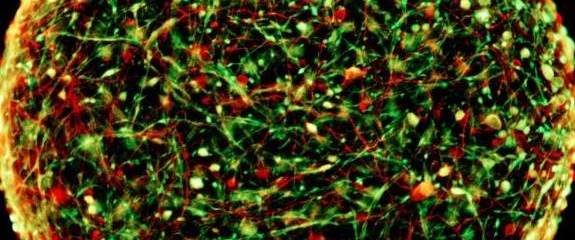Could 'mini-brains' replace animal models in the lab?

Animal trials are almost as old as medical science itself, but their history and usefulness does not prevent them from being a controversial topic. Any possible routes to minimize their usage are unceasingly pursued. Hundreds of thousands of animals are used for neurological research on a yearly basis. However, around 95% of drugs that show success in animals do not work in humans. Groundbreaking research into growing functioning brain tissue hopes to replace our reliance on creatures. Researchers at Johns Hopkins Bloomberg School of Public Health, in Baltimore, MD, are hoping that their new mini-brains might eventually take over from standard animal-based neurological research.
The Center for Alternatives to Animal Testing (CAAT) at Johns Hopkins have been at the forefront of cell culture methods for 35 years. Dr. Thomas Hartung and his team at CAAT are working to develop miniature brains consisting of genuine, functioning interconnected neurons.
Currently, human cell cultures consist of just one type of cell, and those cells are not interconnected in any way. The cells are often generated from either a resected tumor or embryonic stem cells, both of which carry their own ethical issues.
Dr. Hartung's groundbreaking mini-brains are cut from a different cloth. They are constructed using skin cells from healthy patients "reprogrammed" to become stem cells. As such, these cells, known as induced pluripotent stem cells (iPSCs), circumvent the ethical minefield.


